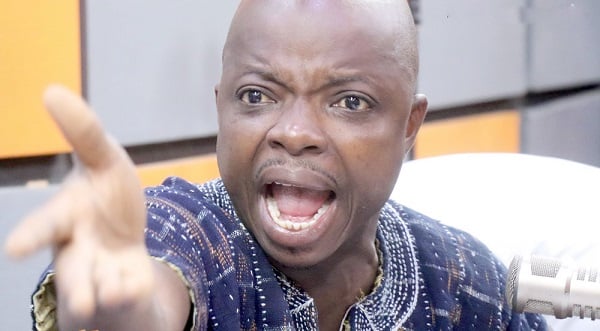The arrest and subsequent remand of Kwame Baffoe, also known as Abronye DC, the Bono Regional Chairman of the opposition New Patriotic Party (NPP), has ignited a firestorm of criticism from the Minority Caucus in Parliament. They vehemently denounce the charges against Baffoe, labeling them as vague, politically motivated, and failing to adhere to international legal standards. The Caucus argues that this case epitomizes a disturbing trend of the government weaponizing the judicial system to silence dissenting voices and persecute political opponents. They assert that Baffoe’s remand without bail is not a measure of justice but rather a form of preemptive punishment, further highlighting the government’s alleged abuse of power. The Minority connects Baffoe’s arrest to his reported attempts to seek asylum in eight countries due to alleged threats to his life, painting a picture of a government intent on suppressing any form of opposition.
The Minority Caucus broadens its critique beyond the specific case of Abronye DC, arguing that his arrest is part of a larger, systematic campaign to stifle free speech and dissent in Ghana. They point to a pattern of arbitrary arrests targeting journalists, opposition figures, and social commentators, coupled with the deployment of security forces to intimidate citizens who dare to expose corruption. This orchestrated climate of fear, they argue, is a direct assault on the fundamental principles of democracy and free expression. The Caucus contends that the government is prioritizing political witch-hunts over addressing the pressing needs of the nation, thereby undermining the very fabric of Ghanaian society.
Adding further fuel to their accusations, the Minority Caucus draws attention to what they describe as a concerning escalation of threats against prominent political leaders within their ranks. They specifically mention Minority Leader Hon. Osahen Alexander Kwamena Afenyo-Markin, Chief Whip Hon. Frank Annoh-Dompreh, and NPP National Organiser Henry Nana Boakye (Nana B), alleging that credible assassination threats against these individuals have been disregarded by the authorities. This alleged inaction, they argue, not only endangers the lives of these leaders but also contributes to the overall atmosphere of intimidation and fear that is permeating the political landscape. The Caucus emphasizes that this is not simply a partisan issue but a grave threat to the very foundation of democracy in Ghana.
The Minority Caucus juxtaposes the government’s alleged preoccupation with silencing dissent with its perceived neglect of critical national crises, most notably the escalating communal violence in northern Ghana. This violence, they emphasize, has resulted in a devastating humanitarian emergency, claiming numerous lives, displacing tens of thousands of people, and forcing many to seek refuge in neighboring countries. The Caucus accuses the government of using political persecution as a smokescreen to distract from its failure to address this urgent and tragic situation, thereby exacerbating the suffering of the affected communities. They highlight the stark contrast between the government’s alleged focus on suppressing political opponents and its apparent disregard for the plight of its citizens facing violence and displacement.
Furthermore, the Minority Caucus accuses the government of abandoning its constitutional duties in favor of consolidating authoritarian power. They cite a range of alleged abuses, including judicial persecution, executive overreach, economic manipulation, and security failures, as evidence of a systematic erosion of democratic principles. They argue that these actions represent a clear and present danger to the future of democracy in Ghana, undermining the very foundations of the nation’s governance. The Caucus paints a picture of a government increasingly focused on maintaining its grip on power at the expense of the rights and well-being of its citizens.
In their concluding remarks, the Minority Caucus issues a stern warning about the implications of the government’s alleged actions. They argue that the current climate of intimidation and political persecution poses a grave threat to Ghana’s democracy, jeopardizing the fundamental freedoms and rights guaranteed to all citizens. The Caucus calls on the Ghana Police Service to uphold its duty to impartiality and ensure the protection of all political actors, regardless of their affiliation. They emphasize the urgent need for a return to the principles of democratic governance, respect for human rights, and the rule of law to safeguard the future of Ghana.


